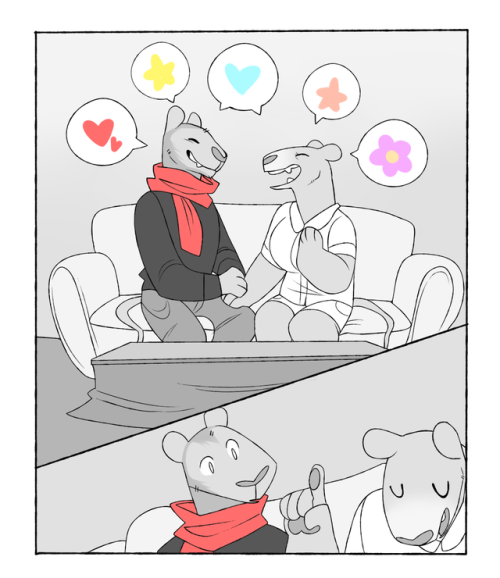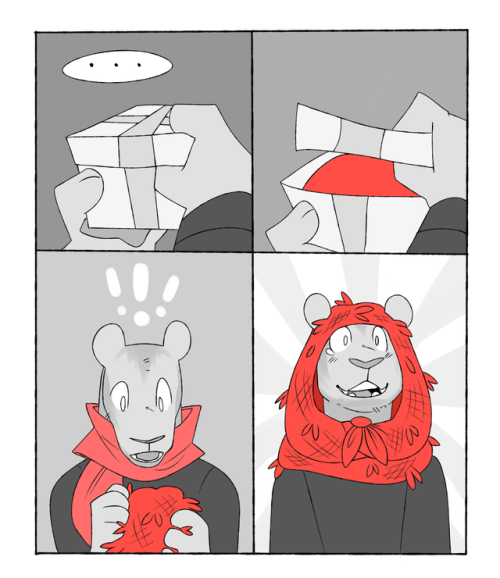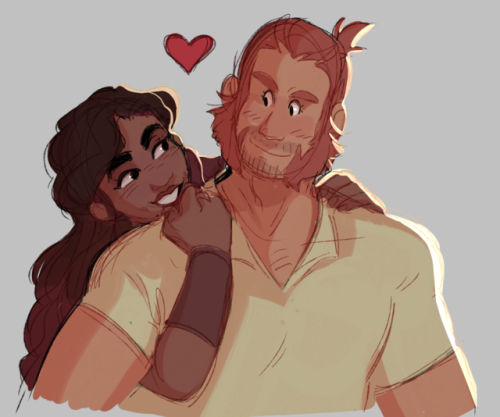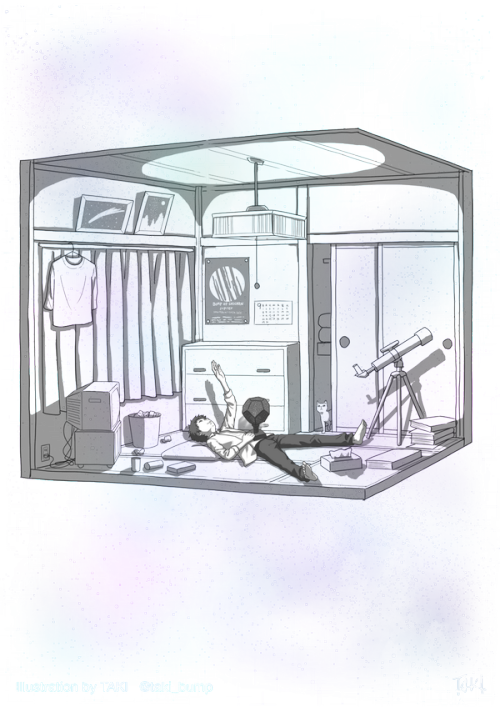If You Are Against BLM, You Are Unwelcome On My Page.
If you are against BLM, you are unwelcome on my page.
If you support AllLivesMatter or BlueLivesMatter, you are not my friend.
If you think the riots are unjustified and irrational, unfollow me right now.
I am not black, but I support the black community all the way. I cannot possibly understand your pain or your suffering, but I'm with you. Now and forever.
More Posts from And-void and Others
what’s up im also on Cara now









Mark pays a visit to his mother’s for the holidays Hope everyone has the chance to make fond memories before the year ends <3 My Patreon
hello minor update im officially posting on bluesky so if tumblr fucking implodes and you still wanna look at my art and other posts, i will transition to that being my main platform. fuck you instagram explode explode explode forever
8 Ways to Improve Your Writing
I got a great anonymous ask last week from someone who wanted to know how to identify weak spots in their writing. One of the things that comes with time and experience is finding the language to identify, discuss, and address the feeling that something isn’t quite right or that a story is “missing something.” Not knowing them or their writing, of course I couldn’t help them figure out what specifically the problem was. But I did share with them a list of things I’ve done over the years to be able to identify weak spots and improve my writing.
1. Analyze your favorite writers.
Figure out why you like the writing that you like. Ask yourself: What are they doing here? What are they doing that I’m not doing? Why do I love their writing so much? Take notes on their stories. Plot them. Write in the margins. Read them slowly. Read their reviews—both good and bad. Did that writer you love once write something you hated? Great, even better. Figure out why that particular book was different from the others.
2. Analyze your own writing.
Do you have an older story you wrote that you love? Figure out why. What did you do differently in that story that you’re not doing in the current story you’re writing? Make notes. Draw maps. Reverse engineer everything.
3. Develop a language to talk and think about writing.
Read craft books, blogs, anything you can get your hands on. Learn about point of view, conflict, character development, dialogue, story structure, syntax, metaphors. Get your advice from good sources, and don’t believe everything you read. If something doesn’t sit right with you, throw it out. But be open to everything.
4. Journal and write about your writing.
Over time, you will identify consistent weaknesses that you have. Then, in the future, when you feel like “something is missing” from your writing, you can reference your notes and remember, for example, that you often have difficulty with your protagonist’s motivation, with theme, with dialogue, etc., and you’ll have a better idea about where to go looking.
5. Share your writing with someone you trust, ideally a more experienced writer than you or an editor or mentor.
Be very careful about who you share your writing with. Friends and family are not always the best choice. You don’t want someone who’s just going to throw around their uneducated opinion about your work, who has a big ego, or who won’t be honest with you. Remember: “I liked it” or “I didn’t like it” are useless pieces of feedback. You want someone who can read your work and say, “Your protagonist’s passion for music made them really likeable to me. I was dying to know whether they would get into the conservatory or not!” or “My attention wandered on page two, when you described the couch upholstery for three paragraphs.”
6. Analyze the areas of your writing which are commonly problematic for new writers (and writers in general).
In my experience as an editor, the most likely culprits are unclear character motivation and lack of conflict. There are a lot of good resources (books and blogs) about this. Try a Google search for “most common mistakes beginning writers make.”
7. Trust your intuition.
Do you keep coming back to the same page or scene in your story, feeling like it isn’t right? You’re probably onto something.
8. Take time away from your writing.
You’d be amazed how much more clear everything will be after a break. Give yourself at least a week for a short story, 3-4 weeks for a novel. It could also be the case that your ambitions for this particular story don’t yet match your skills, and that you’ll have to wait even longer to successfully finish it. I’ve known writers who have given up on a story only to come back to it months or years later once they’d gained the skills and insight to complete it. And then suddenly writing that story seemed really easy!
Touch by Lucz Anne fowler
welcome to shithole
cohost fucking exploded so its time for my shameful return. i will be posting art here again. uhhh
my beautiful website
my wretched instagram
my bluesky that im scared of
cara if anyone even uses that
personal/side blog

more wonderful winter words ❄
hoarfrost (n.) a grayish-white crystalline deposit of frozen water vapor formed in clear still weather on vegetation, fences, etc. rime (n.) frost formed on cold objects by the rapid freezing of water vapor in cloud or fog. frazil (n.) soft or amorphous ice formed by the accumulation of ice crystals in water that is too turbulent to freeze solid. whiteout (n.) a blizzard, especially in polar regions, that reduces visibilities to near zero.
-
 atsa-politics reblogged this · 1 month ago
atsa-politics reblogged this · 1 month ago -
 linkani liked this · 1 month ago
linkani liked this · 1 month ago -
 stressed-depressed91 liked this · 3 months ago
stressed-depressed91 liked this · 3 months ago -
 4gottenname liked this · 5 months ago
4gottenname liked this · 5 months ago -
 lurkermooncalf liked this · 5 months ago
lurkermooncalf liked this · 5 months ago -
 the-athena-mysteries-castle reblogged this · 5 months ago
the-athena-mysteries-castle reblogged this · 5 months ago -
 annaijrvv liked this · 5 months ago
annaijrvv liked this · 5 months ago -
 ellyjamer reblogged this · 8 months ago
ellyjamer reblogged this · 8 months ago -
 lilipanduhhh liked this · 8 months ago
lilipanduhhh liked this · 8 months ago -
 arcanel0v3r liked this · 8 months ago
arcanel0v3r liked this · 8 months ago -
 imnotadegenerateipromise reblogged this · 10 months ago
imnotadegenerateipromise reblogged this · 10 months ago -
 amethyst-witch06 liked this · 10 months ago
amethyst-witch06 liked this · 10 months ago -
 scentedtyrantwitch reblogged this · 10 months ago
scentedtyrantwitch reblogged this · 10 months ago -
 minifridge44 liked this · 10 months ago
minifridge44 liked this · 10 months ago -
 kingdom-falls reblogged this · 10 months ago
kingdom-falls reblogged this · 10 months ago -
 kingdom-falls liked this · 10 months ago
kingdom-falls liked this · 10 months ago -
 alola03 liked this · 10 months ago
alola03 liked this · 10 months ago -
 phessie reblogged this · 10 months ago
phessie reblogged this · 10 months ago -
 sneakmanman reblogged this · 11 months ago
sneakmanman reblogged this · 11 months ago -
 sneakmanman reblogged this · 11 months ago
sneakmanman reblogged this · 11 months ago -
 sneakmanman liked this · 11 months ago
sneakmanman liked this · 11 months ago -
 sneakmanman reblogged this · 11 months ago
sneakmanman reblogged this · 11 months ago -
 sneakmanman reblogged this · 11 months ago
sneakmanman reblogged this · 11 months ago -
 sneakmanman reblogged this · 11 months ago
sneakmanman reblogged this · 11 months ago -
 sneakmanman reblogged this · 11 months ago
sneakmanman reblogged this · 11 months ago -
 goldencatwithapen liked this · 11 months ago
goldencatwithapen liked this · 11 months ago -
 margarita-moon liked this · 1 year ago
margarita-moon liked this · 1 year ago -
 karlalamp liked this · 1 year ago
karlalamp liked this · 1 year ago -
 90ndyliars liked this · 1 year ago
90ndyliars liked this · 1 year ago -
 mx-heinous reblogged this · 1 year ago
mx-heinous reblogged this · 1 year ago -
 gay-aunt-jackie reblogged this · 1 year ago
gay-aunt-jackie reblogged this · 1 year ago -
 thief-and-dragonfly liked this · 1 year ago
thief-and-dragonfly liked this · 1 year ago -
 thatdemiboymess liked this · 1 year ago
thatdemiboymess liked this · 1 year ago -
 azombiedoll liked this · 1 year ago
azombiedoll liked this · 1 year ago -
 your-random-night-enjoyer liked this · 1 year ago
your-random-night-enjoyer liked this · 1 year ago -
 flowerguy4ever liked this · 1 year ago
flowerguy4ever liked this · 1 year ago -
 spidergoatduex liked this · 1 year ago
spidergoatduex liked this · 1 year ago -
 bartylusfan liked this · 1 year ago
bartylusfan liked this · 1 year ago -
 lostinthewanderingblue liked this · 1 year ago
lostinthewanderingblue liked this · 1 year ago -
 phantom-of-the-theatre reblogged this · 1 year ago
phantom-of-the-theatre reblogged this · 1 year ago -
 phantom-of-the-theatre liked this · 1 year ago
phantom-of-the-theatre liked this · 1 year ago














